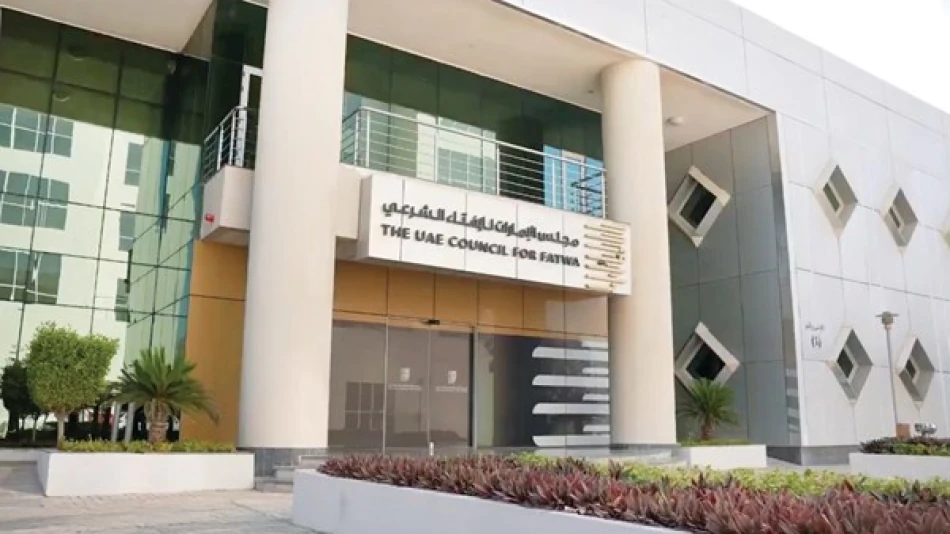
UAE's Islamic Affairs Council Sets 2025 Date Palm Zakat Threshold
UAE Sets Religious Tax Threshold for Date Farmers as Agricultural Zakat Gains Global Momentum
The UAE's Islamic Affairs Council has established a 541-kilogram threshold for mandatory religious taxation on dried dates in 2025, reflecting the country's systematic approach to integrating traditional Islamic finance principles with modern agricultural policy. This move positions the Emirates at the forefront of nations formalizing religious obligations within their economic frameworks, potentially influencing how other Muslim-majority countries structure agricultural taxation.
The Mechanics of Date Zakat in Practice
The Emirates Council for Sharia Fatwa, working alongside the General Authority of Islamic Affairs, Endowments and Zakat, has created a tiered system that mirrors modern tax policy sophistication. Date farmers whose harvest exceeds 541 kilograms of dried dates must pay either 10% or 5% of their yield, depending on irrigation costs—a distinction that acknowledges the economic realities of modern agriculture.
Farms using natural water sources like rainfall or springs face the higher 10% rate, while those requiring costly irrigation systems pay the reduced 5% rate. This differentiation demonstrates how ancient religious principles can adapt to contemporary business considerations, potentially serving as a model for other agricultural taxation schemes globally.
Flexibility in Payment Methods
The system allows farmers to pay either in dates or cash equivalent, though fresh dates are not acceptable—only dried fruit or its monetary value. This requirement ensures standardization and prevents seasonal price fluctuations from affecting the tax burden, a consideration that modern commodity-based taxation systems worldwide could learn from.
Economic Implications for UAE Agriculture
The UAE's date industry, worth hundreds of millions of dollars annually, now operates under clear religious taxation guidelines that could influence investment decisions. International agricultural investors and local farmers gain certainty about their religious obligations, potentially making UAE date farming more attractive compared to regions with unclear or inconsistent religious tax frameworks.
The policy exempts up to one-third of the harvest consumed, gifted, or donated by farmers, effectively encouraging local consumption and charitable giving while reducing the tax burden on smaller operations. This approach contrasts sharply with conventional agricultural taxation that typically offers no such consumption allowances.
Regional Leadership in Islamic Finance Integration
This formalization places the UAE ahead of regional competitors in creating transparent, government-backed Islamic finance mechanisms. While countries like Malaysia and Indonesia have various Islamic taxation systems, the UAE's systematic approach to agricultural zakat could attract Muslim investors seeking Sharia-compliant investment opportunities with clear regulatory frameworks.
The requirement that payments flow through official government channels rather than direct charitable giving also strengthens state capacity for wealth redistribution—a significant departure from traditional zakat practices where individuals chose their own recipients.
Global Context and Future Implications
As Islamic finance grows globally, reaching over $3 trillion in assets, the UAE's structured approach to agricultural zakat could influence international Islamic banking standards. The system's emphasis on government administration and standardized thresholds offers a template for other nations seeking to formalize religious obligations within their tax systems.
For multinational agricultural companies operating in Muslim-majority countries, this development signals a trend toward greater formalization of religious taxation that could affect investment calculations across the Islamic world. The UAE's success in implementing this system may encourage similar moves in other Gulf states, potentially creating a standardized approach to Islamic agricultural taxation across the region.
Most Viewed News

 Layla Al Mansoori
Layla Al Mansoori






